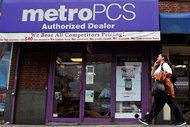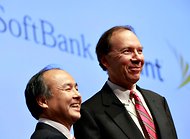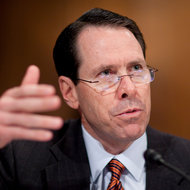7:41 a.m. | Updated
The pay-TV operator Dish Network said on Monday that it had submitted a $25.5 billion bid for Sprint Nextel.
The move is an attempt to scupper the planned takeover of Sprint Nextel by the Japanese telecommunications company SoftBank, which agreed in October to acquire a 70 percent stake in the American cellphone operator in a complex deal worth about $20 billion.
Related Links
Dish Network thinks it can do better. Under the terms of its proposed bid, Dish Network said it was offering a cash-and-stock deal worth about 13 percent more than SoftBank’s bid.
Dish Network values its offer at $7 a share, including $4.76 in cash and the remainder in its shares.The offer is 12.5 percent above Sprint Nextel’s closing share price on Friday.
“The Dish proposal clearly presents Sprint shareholders with a superior alternative to the pending SoftBank proposal,” said Charles W. Ergen, Dish Network’s chairman.
Mr. Ergen said a “Dish/Sprint merger will create the only company that can offer customers a convenient, fully integrated, nationwide bundle of in- and out-of-home video, broadband and voice services.”
The bid is the latest for the telecommunications industry, as many of the largest companies around the world look to expand through acquisitions.
As part of its offer, Dish Network said it would be able to combine its own existing broadband and TV offerings with Sprint Nextel’s cellphone operations. The proposed takeover would allow the newly united company to compete with rivals like Verizon that are moving into new areas in search of revenue.
As the No. 3 cellphone service provider, with 56 million subscribers nationwide, Sprint Nextel has struggled to catch up with larger rivals. It is expected to face even more competition as the parent company of T-Mobile USA moves closer to a multibillion-dollar agreement to buy MetroPCS.
Dish Network said it would finance the cash component of the takeover through a combination of $17.3 billion in cash and debt financing.
Barclays is advising Dish Network on its proposed bid. Deutsche Bank, the Raine Group and Mizuho Securities are advising SoftBank. Citigroup, Rothschild and UBS are advising Sprint Nextel.
Article source: http://dealbook.nytimes.com/2013/04/15/dish-network-makes-25-5-billion-bid-for-sprint-nextel/?partner=rss&emc=rss



